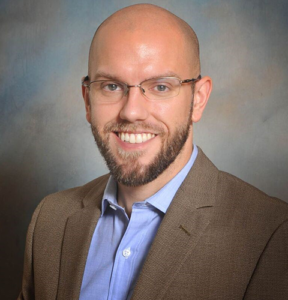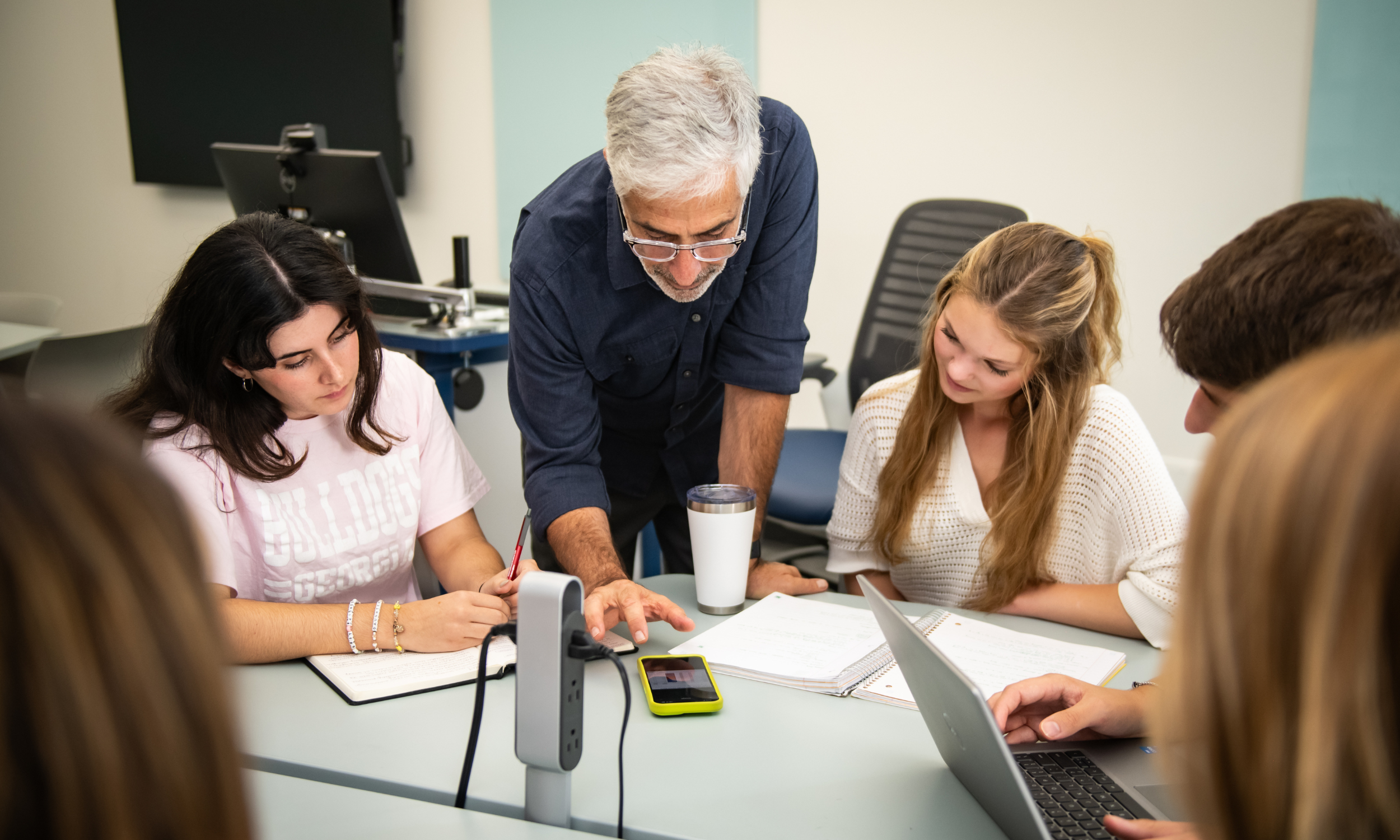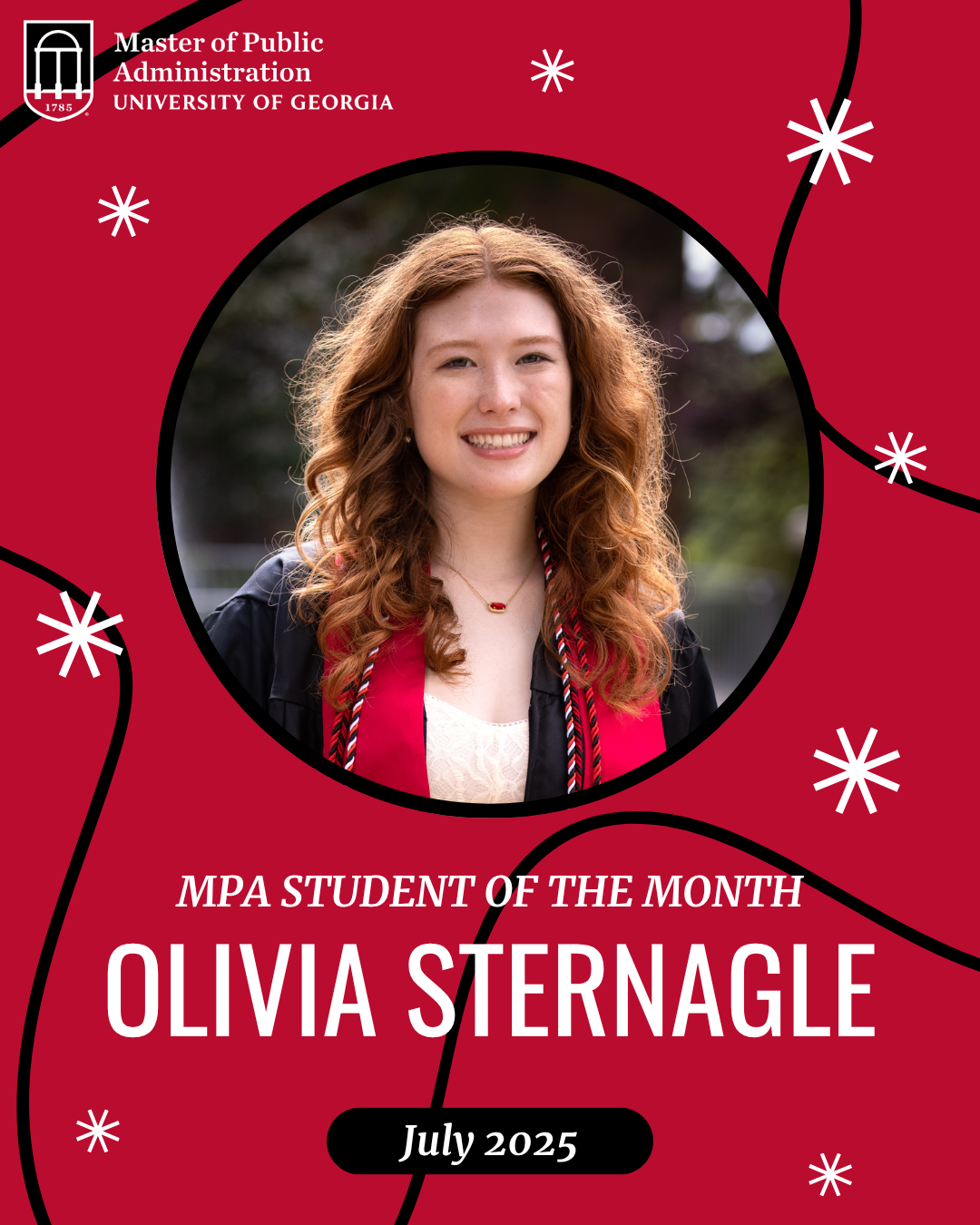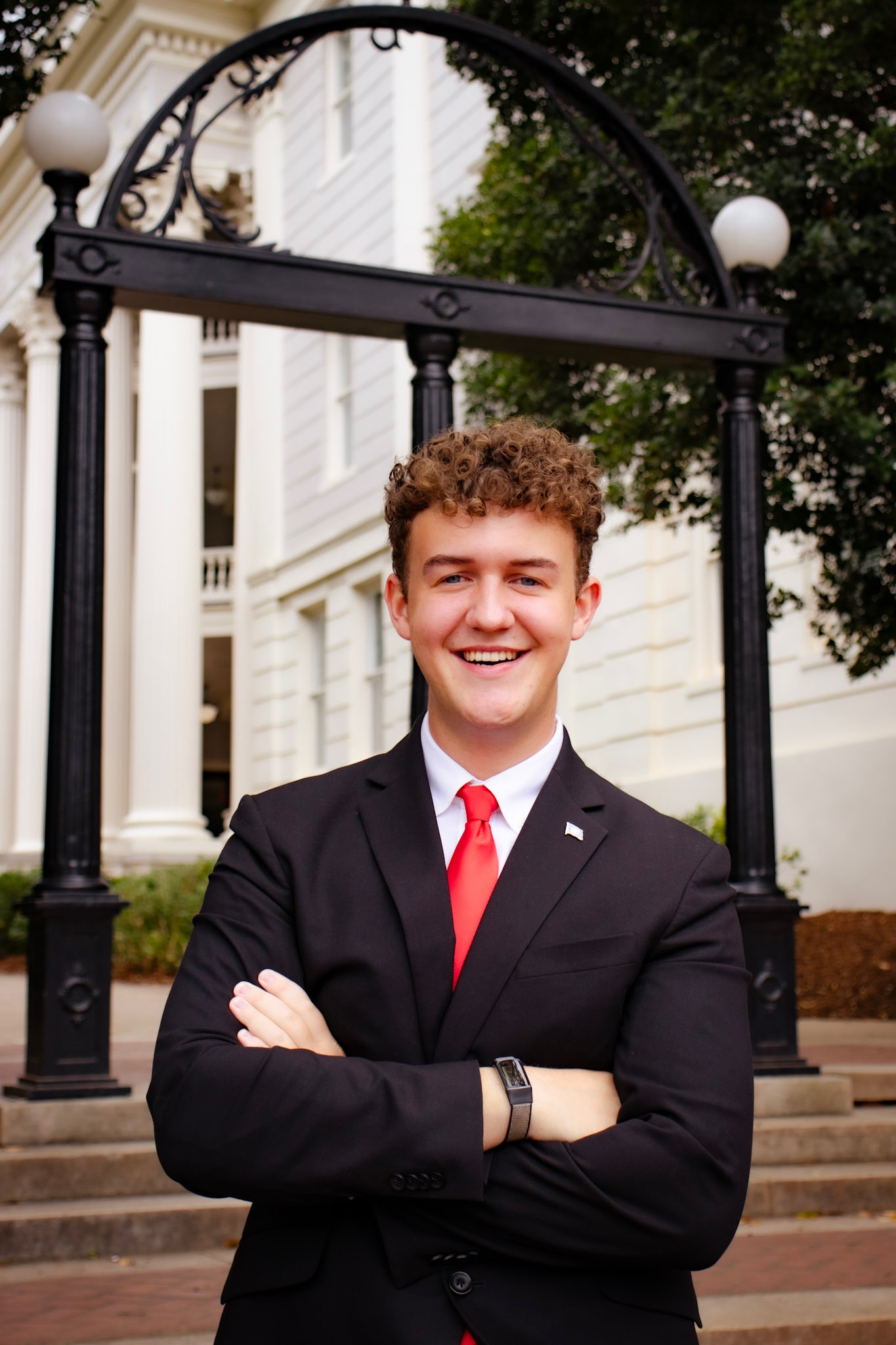
SPIA is excited to introduce Alex Combs!
Alex Combs received his PhD from the University of Kentucky in 2018. His main research interests revolve around education finance and policy. He is particularly interested in competition over financial resources and human capital between local and state governments as well as educational institutions. His ongoing projects concern the composition of state support for higher education, college student migration, and the interaction between school finance equalization and various property tax mechanisms in rural and non-rural communities. When he’s not working, Dr. Combs spends his time cycling and jogging around Athens, as well as taking backpacking trips along the Appalachian Trail during the summers. He hopes to try out kayaking soon.
Q: What attracted you to UGA?
AC: I liked that UGA is the birthplace of the American system of higher education, especially as someone whose research focuses on the financing of education and its equal availability to all people. By any metric, SPIA is one of the best places anyone in my field could hope to land. I arrived at SPIA last year as a visiting assistant professor while continuing to navigate the academic job market. Meeting some of the great faculty, staff, and students last year only heightened the appeal of working here long-term. I am very happy to be at UGA.
Q: Where did you grow up?
AC: I grew up on a small farm near Eaton, OH. My family dabbled with a few cows and chickens while bartering our pasture and cropland with neighbors. There was almost always something fun and/or tiring to do outside.
Q: What are you working on that you’re most excited about?
AC: I’m generally most excited about my newest research project. At the moment, that involves examining the decisions of school boards not to levy as much property tax as state law allows without the need for a public vote. Much attention is directed toward levies that involve a vote, but there are many instances where school boards face a vote and do not raise as much revenue for schools as they could. Such decisions can have a cumulative effect on a district’s ability to raise revenue years later. I hope to offer more insight into the factors related to this phenomenon and the extent to which it explains resource disparities across school districts.
Q: What was your favorite part of your college experience?
AC: Commencement ceremony and the tradition at Eastern Kentucky University (as well as many other institutions) to ask first-generation students to stand so their families can be congratulated. This would have been meaningful on its own, but I was president of student government my graduating year and got to sit on stage along with the university’s leaders. Standing on the stage, seeing all of my fellow first-generation graduates in the crowd and in plain view for my family was a special moment for me. It felt like a testament to my parent’s hard work to provide me an opportunity they did not have.
Q: What is your favorite food?
AC: Peanut butter with or without its usual accompaniments. My favorite combo is peanut butter and syrup. Spread that on a biscuit and you have got yourself some good eats.
Q: Please tell us one fun fact about you.
AC: To help pay for college, I spent a couple summers working at a box factory and have had a respect for corrugated fiberboard ever since.
Q: What are you looking forward to in the coming year?
AC: A critical mass of folks receiving a COVID vaccine.
Q: Who inspires you in your research or career?
AC: Dr. Eugenia Toma. She is an excellent teacher who cares about her students. Improving efficacy and equity in education motivates her research, and her service to the University of Kentucky has been indispensable. For me, she is a brutally honest and caring mentor. If I have a fraction of the positive impact Dr. Toma has had on individuals and institutions, I will consider my career a success.
Q: If you could have one superpower, what would it be?
AC: I’m not sure if this counts as having a superpower, but I would like to wield Wonder Woman’s Lasso of Truth. Society would need to set some rules for it to be used responsibly for the public good. That process alone would be interesting and likely transformative.
Q: What advice do you have for SPIA students?
AC: Assume you are not the smartest person in the room and embrace it unapologetically with curiosity and questions. Also, if you offer someone help, be specific. They may not know how you can help or in what ways they may need help. If you don’t know, reconsider your offer.








